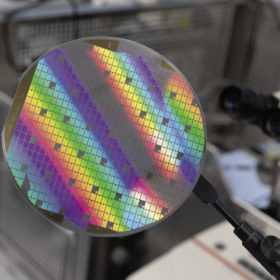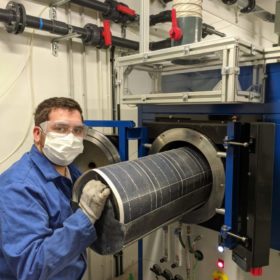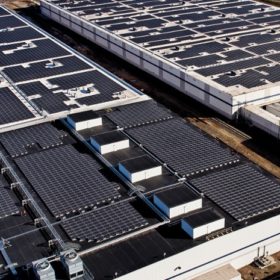Rollable CIGS solar modules from France
French start-up Solar Cloth is planning to scale up capacity at its module production facility near Cannes. The factory will produce 17.6%-efficient flexible solar modules integrated into textile supports.
LG exits solar module business
The Korean manufacturer said its solar module business will be closed by the end of June. It blamed uncertainties in the global solar industry for its decision.
Flexible PV panels based on hyperconnected back-contact solar cells
US start-up mPower Technology is scaling up its flexible crystalline silicon solar module technology for spatial and terrestrial applications. The back-contact solar panels consist of micro-singulated silicon dies that are “hyper-interconnected” in series or in parallel. The devices have efficiency ranging from 22 to 23% depending on the size or applications.
Novel IBC solar cell architecture based on crystal photonics shows efficiency potential of 29.1%
Scientists in Germany designed a poly-Si on oxide (POLO) interdigitated back-contact (IBC) solar cell integrating photon crystals and found this architecture has the potential to reach a power conversion efficiency of over 28%, which would be 1% higher than the current practical limit set by the scientific community. They also found that by improving passivation, the efficiency may be raised up to 29.1%.
The long read: Silicon carbide’s second coming
Silicon carbide (SiC) has promised inverter makers higher power density, higher efficiency, and a total bill of materials that comes in closer to its more established rival in silicon. Has SiC finally arrived? Tristan Rayner spoke to the people at the forefront of the wider-bandgap material to find out the back story and what’s next.
New PV module recycling tech from France
French start-up Rosi Solar has developed an industrial solution claimed to be capable of recovering high purity silicon, silver and copper contained in end-of-life PV modules. The company’s technology is based on a pyrolysis process that makes it possible to isolate the different metals from the cells.
A 4,000 cycle lithium-sulfur battery
Scientists in the United States developed a lithium-sulfur battery using a commercially available carbonate electrolyte, that retained more than 80% of its initial capacity after 4000 cycles. The group used a vapor deposition process which unexpectedly produced a form of sulfur that did not react with the electrolyte, overcoming one of the key challenges for this battery chemistry.
Rooftop solar price to keep rising this year
British analyst GlobalData has predicted residential and commercial rooftop panels will not return to a declining price trend until next year, with post-Covid logistics headaches the cause, rather than a polysilicon shortage.
Soluna unveils 1.28 kWh portable power generator
Soluna’s new generator can be combined in a two-unit system to reach a capacity of 2.5kWh. It features built-in 120V(AC) output, continuous AC output power of 1,200W, and peak output of up to 2,400W.
Solar power prices rising with demand
Recent BloombergNEF research shows that corporations procured a record 31GW of renewable energy in 2021, and LevelTen Energy says that growth occurred despite more than a year of price increases.















